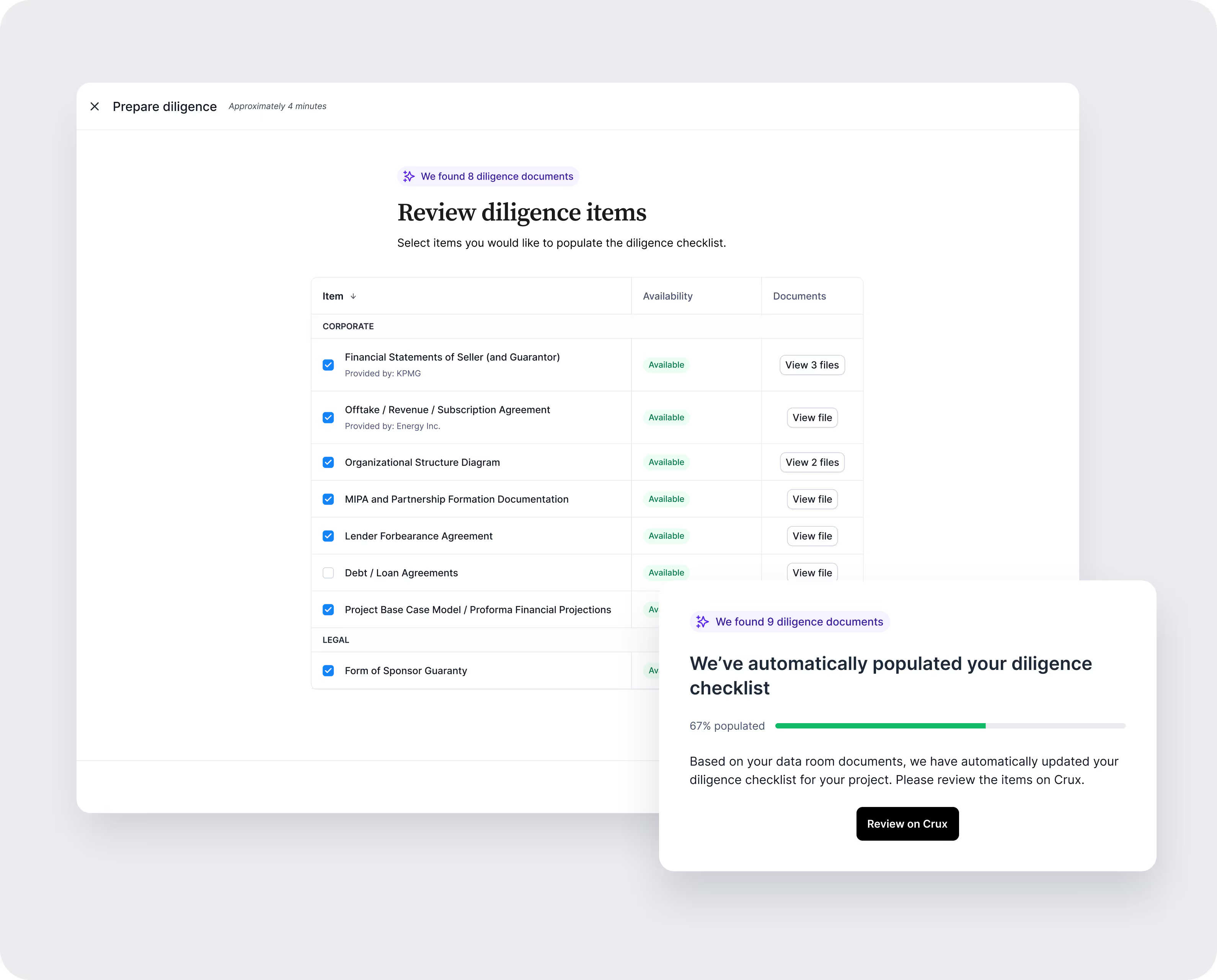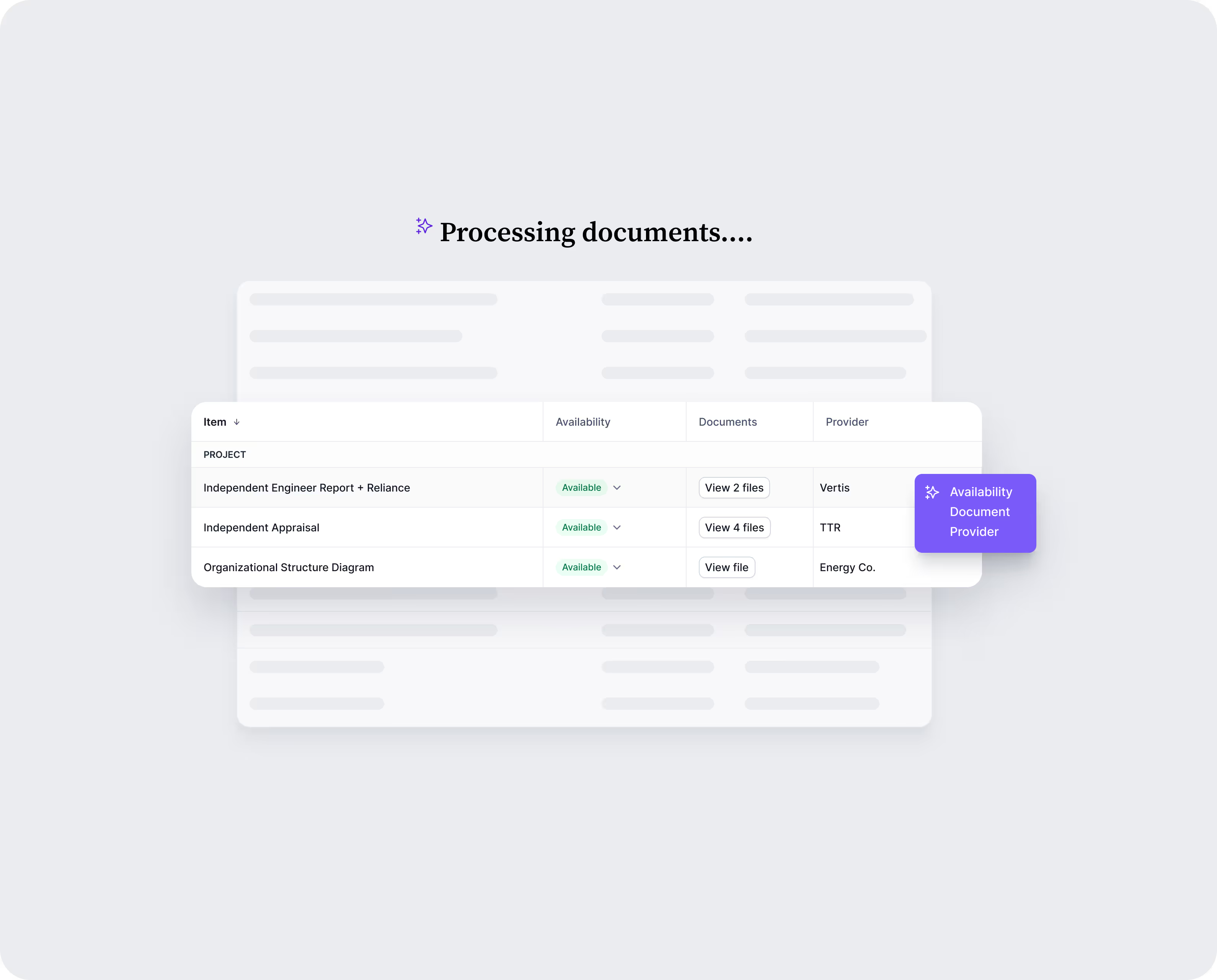
Due diligence is a crucial part of any clean economy financing, but is often an intensive, time-consuming process. In a Crux survey, nearly 40% of advisors noted that due diligence had caused transaction delays.
What makes the due diligence process so time consuming? First, the developer or manufacturer must populate a data room with all the materials requested by the buyer, often provided in the form of long diligence request lists. The developer must collect those documents from various internal teams, organize them, upload them into the data room, and update the status in the list. They may also have to clarify many requests.
Once the developer has uploaded the requested materials, the tax credit buyer and their counsel usually do an initial pass through the data room to verify that all requested information has been provided and meets their expectations. While this prevents surprises later in the transaction, it’s a very manual process involving cross-referencing the diligence request list against the file and folder tree in the data room. This process takes even longer if documents are poorly organized, inappropriately named, or need to be requested from the developer because they’re missing.
Only once these initial steps are completed can the actual transaction diligence begin.
As part of our mission to make financing more liquid, efficient, and intelligent, we’ve been working to make the due diligence process less onerous. We’ve released several in-platform tools and resources for transactions:
Today, we’re launching a new tool to streamline organizing, reviewing, and verifying diligence materials: diligence verification. This upgrade creates huge time savings across all phases of the due diligence process. Early users on both sides of transactions found that these tools saved time and made a toilsome process much easier.
When developers and manufacturers upload files to Crux, the platform scans the files and their contents to identify what diligence items they correspond to, leveraging large language models to auto-populate the list — turning a once-cluttered data room into a streamlined checklist. Developers can easily verify the information, turning four complicated steps into one easy flow.

Buyers and their counsel can now avoid the messy process of clicking through every file and folder to figure out what is available in the data room and where it lives.
Items will be automatically marked based on their availability, and tax credit buyers can immediately see the status of various items, filter or search by availability, and click in to see the specific file(s) associated with an item.
Buyers and their legal counsel can preview files directly in the due diligence checklist. The single-application process eliminates the time spent finding files in the data room and then reviewing them offline. Documents in the diligence checklist are even searchable to maximize efficiency.

The diligence verification tool is the first step in embedding large language models into the Crux platform to accelerate contracting and diligence without sacrificing quality. Next, we will be improving the processes to track review status for buyers, request additional diligence materials, and review individual documents.
While we’re focused on creating efficiencies within a single transaction, we also want to improve efficiency between different types of transactions. Expect many of our tools for tax credit transfers to be released for the debt marketplace in the coming months.
To become an early user of upcoming features and provide feedback, reach out to partnerships@cruxclimate.com. Or contact us to learn more about transacting on the Crux platform.
